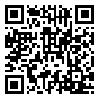

Volume 15, Issue 4 (8-2017)
RBS 2017, 15(4): 518-525 |
Back to browse issues page
Download citation:
BibTeX | RIS | EndNote | Medlars | ProCite | Reference Manager | RefWorks
Send citation to:



BibTeX | RIS | EndNote | Medlars | ProCite | Reference Manager | RefWorks
Send citation to:
اکبری م, ارجمندنیا ع ا, افروز غ, کامکار ک. Investigating the Efficacy of Mindfulness Training on Academic Self-Regulation and Progress among the Students with Dyscalculia. RBS 2017; 15 (4) :518-525
URL: http://rbs.mui.ac.ir/article-1-573-en.html
URL: http://rbs.mui.ac.ir/article-1-573-en.html
Abstract: (2191 Views)
Aim and Background: The largest group of exceptional children who are enrolled in schools for exceptional children belongs to those with dyscalculia. The present study aimed to investigate the efficacy of mindfulness training on academic self-regulation and progress among the students with dyscalculia. Methods and Materials: The research method was quasi-experimental with a pretest/posttest design and control group. The statistical population of the study consisted of students with dyscalculia in fourth and fifth grades of elementary school in the academic year of 2014-15. The subjects received special services at Sanandaj City, Iran, rehabilitation centers for students with dyscalculia. 30 subjects were randomly selected and assigned to two equal groups of control and experimental. The experimental group participated in a 10-session mindfulness training program, but the control group was just exposed to conventional training at rehabilitation centers. Before and after the program, Academic Self-Regulation Questionnaire (SRQ-A) developed by Ryan and Connell as well as researcher-made academic progress assessment test were administered. Multivariate analysis of covariance (MANCOVA) was used to analyze the data. Findings: Following the adjustment of pretest scores, compared to the control group, the experimental group enjoyed a significantly better self-regulation and academic progress (P < 0.050). Conclusions: In general, the findings of the present study are consistent with those of previous studies, which show that cognitive behavioral therapy (CBT)-based training has effectiveness on reducing psychological and academic problems of students with dyscalculia.
Type of Study: Research |
Subject:
General
Received: 2020/02/8 | Accepted: 2020/02/9 | Published: 2020/02/9
Received: 2020/02/8 | Accepted: 2020/02/9 | Published: 2020/02/9
| Rights and permissions | |
 |
This work is licensed under a Creative Commons Attribution-NonCommercial 4.0 International License. |



